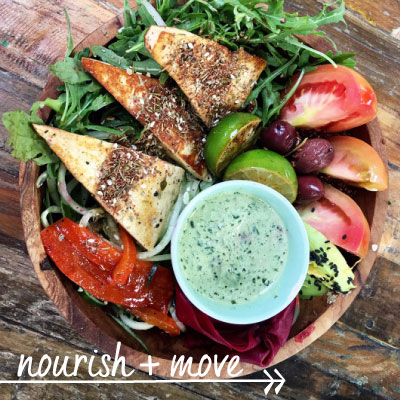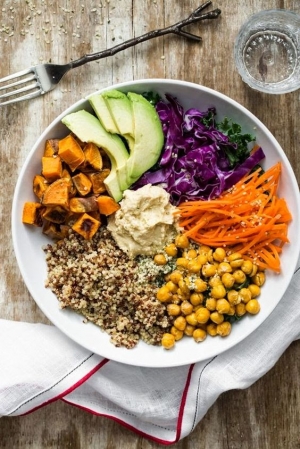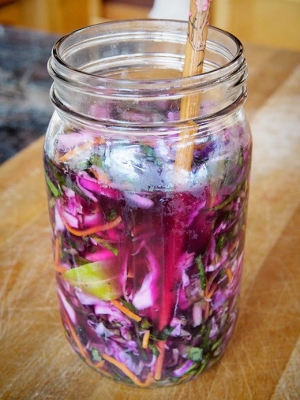8 HEALTHY HABITS TO BOOST YOUR HAPPINESS

We often believe the arrival of certain things – more money, the perfect partner, a better job, bigger house or new car – will make us happier. But Harvard psychologist and author of the New York Times best-selling book, Stumbling On Happiness, Dan Gilbert says our brains constantly misjudge what really makes us happy.
In fact, studies have shown it’s the little things that make the biggest difference to how we feel and function. Being happy is actually a lot like exercise. It takes discipline and daily effort. But if you do the work, you reap the rewards.
We can strengthen our happiness muscles daily by adopting simple, healthy habits that make us feel better. Happiness is not an emotion that just magically happens. It’s state of mind you can create.
Here are some ways to start cultivating your own self-renewable supply.
1. BE BUSY, BUT NOT OVERWHELMED
Everyone needs a reason to get up in the morning. The Japanese call this “ikigai”. In Hindu, it’s called dharma. Knowing our purpose and feeling needed helps us connect with our communities. But sometimes we say yes to doing more than we can manage, with studies showing people who are time-pressured report feeling less happy. Prioritise things that matter most to you. And, wherever you can, practice saying no to the things you say yes to out of obligation.
2. MOVE AS OFTEN AS YOU CAN
It can sometimes feel like a challenge while you’re doing it. But a runner’s high is real. Exercise releases feel-good neurotransmitters called endorphins that trigger positive feelings and GABA (gamma-aminobutyric acid) which calms our nervous system.
Countless studies have proven exercise makes us feel better, reduces tension, boosts our energy and improves our body image. Aim for at least 150 minutes a week or five, 30-minute sessions. Or just break it up into 10-minute bursts whenever you can fit it in. Every little bit counts.
3. SEE YOUR FRIENDS IN REAL LIFE
Humans are hardwired for social connection. While online likes and followers may flush the reward centre of our brain with the addictive neurochemical dopamine, connecting with our loved ones in real life produces the stress-reducing, bonding chemical oxytocin. Face-to-face conversation and physical contact are powerful mind-body medicines that lower blood pressure, heart rate and cortisol levels, boost immunity, relieve pain and anxiety and make us happier. Don’t mistake online connection for real connection. Screens and virtual relationships are no substitutes for seeing our favourite people in the flesh.
4. CHOOSE HAPPY FRIENDS
It’s been proven happiness is contagious. Spending time with happy people makes us feel happier and also makes us more likely to be happy in the future. You wouldn’t sit next to a smoker and deliberately breathe in their second-hand smoke. So don’t hang out with negative people and soak up their bad vibes either. Seek out friends who have a positive outlook and bask in the warmth of their sunny disposition.
5. BE KIND AND GENEROUS
Studies have shown when we give to others we produce oxytocin, also known as “a helper’s high”. People who volunteer are happier, healthier and less likely to suffer from depression. One study found spending money on others even makes us feel happier than spending it on ourselves.
The father of positive psychology, Martin Seligman, says there are three types of lives: pleasant, engaged and meaningful. While a pleasant, pampered life may sound most appealing, engaging in service to others and doing meaningful work will deliver more lasting happiness.
6. THE LINK BETWEEN OUR FOOD AND MOOD
The good bacteria that live in our gut produce many of the neurotransmitters that affect our moods including 80 to 90 percent of our happy hormone, serotonin. To make key neurochemicals we need a diet rich in whole foods including complex carbohydrates (from whole grains and starchy vegetables), amino acids (mostly from lean protein), antioxidants and phytonutrients (from plant foods), vitamins, minerals such as folate (found in leafy greens and legumes) and essential fatty acids (from oily fish, nuts and extra virgin olive oil).
The Beauty Chef’s BODY Inner Beauty Powder is packed with four clean sources of bio-available plant proteins, superfruits, vegetables, alkalizing greens and probiotics, with the added benefits of pure matcha green tea. Joining 40 other superfoods found in the wellness supplement, Matcha is known to increase metabolism, enhance focus and concentration, detoxify the body and boost the immune system, enhance mood and energy, and improve general wellbeing.
7. SLEEP YOURSELF HAPPY
Feeling tired can make us irritable and impatient. Sleep deprivation also increases our stress levels, risk of depression and lowers our libido. Conversely getting seven to nine hours’ rest a night boosts our immunity, productivity, motivation and memory and helps stabilise our emotions.
One study found that people who don’t get enough sleep are more likely to experience repetitive negative thoughts. Another study found sleep-deprived people are worse at gauging subtle emotions such as happiness or sadness in others – making them less able to get along with them. The Beauty Chef’s SLEEP Inner Beauty Powder contains natural sedatives, lemon balm and passionflower to soothe the nervous system and promote quality sleep. It also contains bio-fermented turmeric, rich in anti-oxidants to help combat and repair free radical damage while we sleep.
8. PRACTICE GRATITUDE
Keeping a gratitude journal sounds time-consuming but is scientifically proven to improve your health. In fact, it’s been shown to lower pain levels, stress hormones and blood pressure, boost motivation and optimism and improve your sleep, moods and life satisfaction. Start by writing down three things you are grateful for each night. Show your gratitude to others by sending them a card or giving them a call to say thank you. Or simply spend time outdoors and take the time to appreciate the beauty of nature whenever you can.
Which habits will you start implementing into your daily routine?






